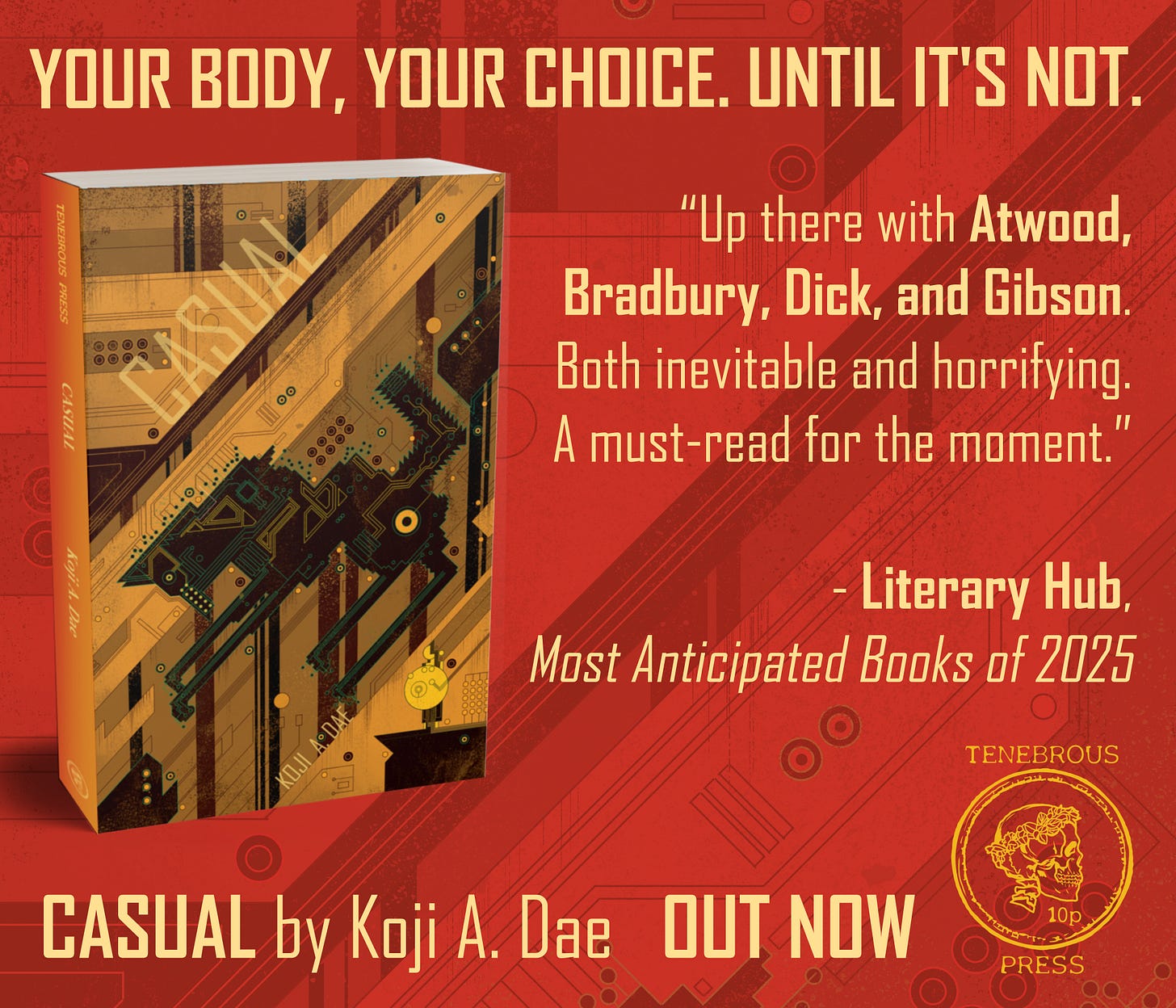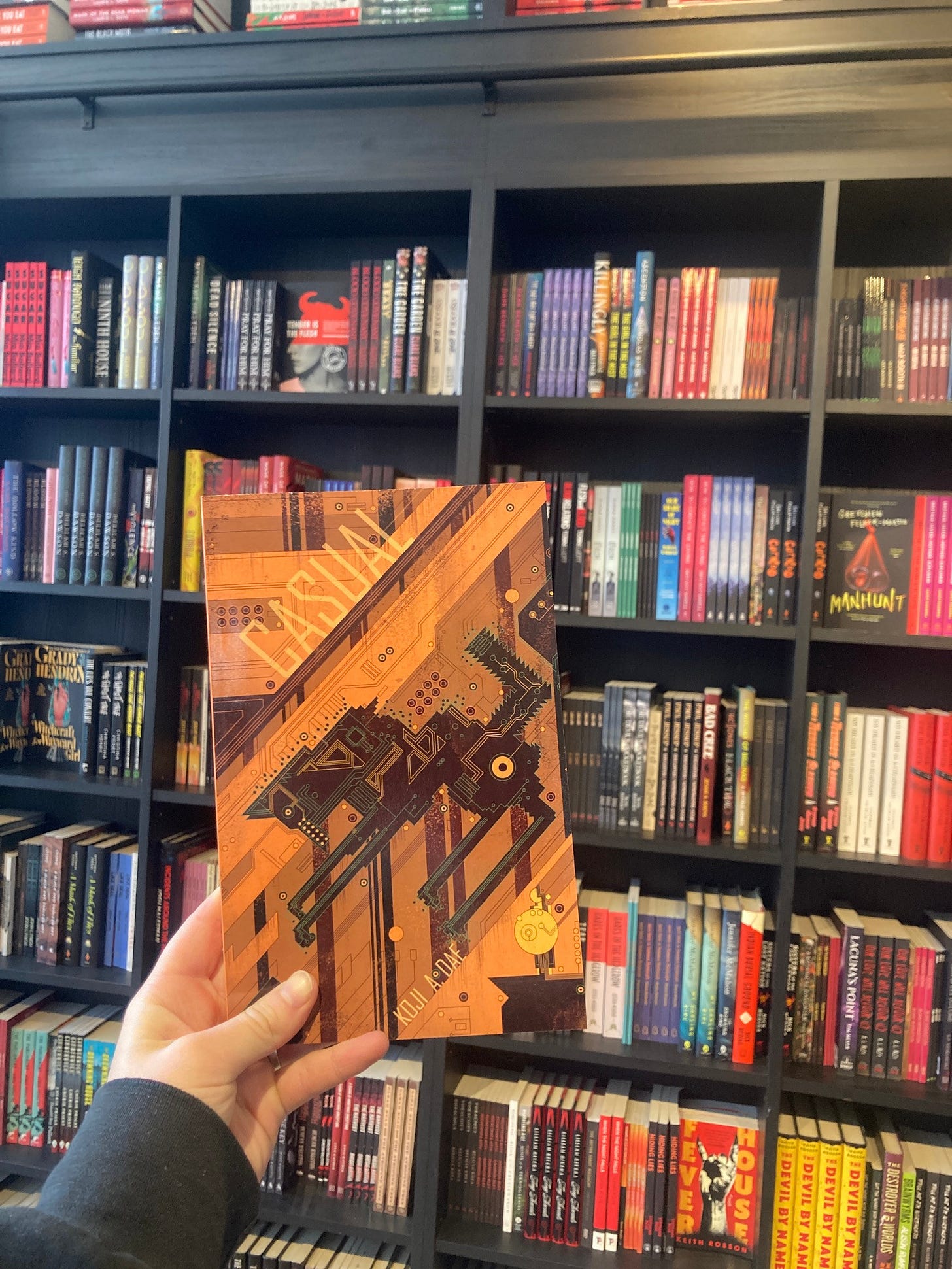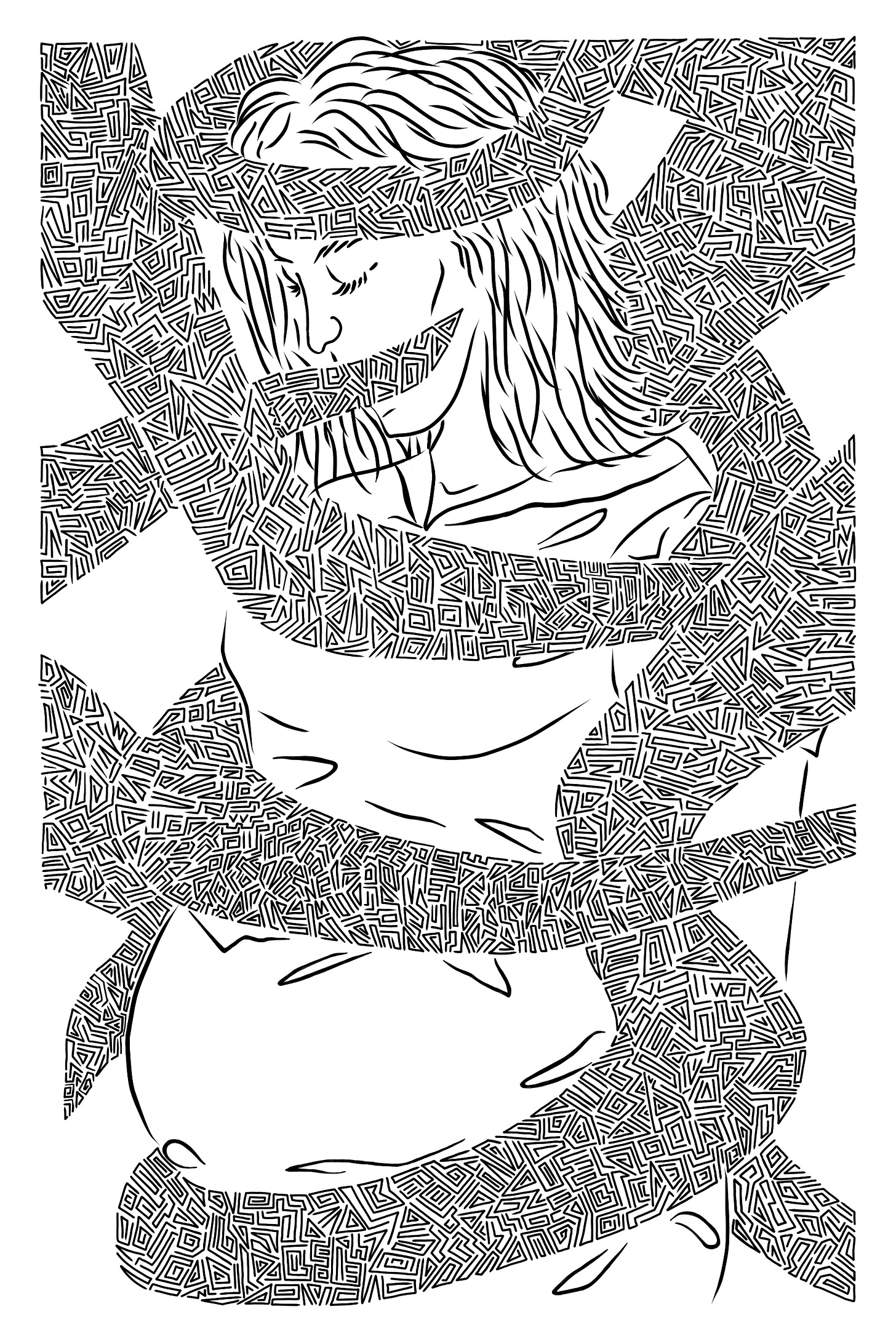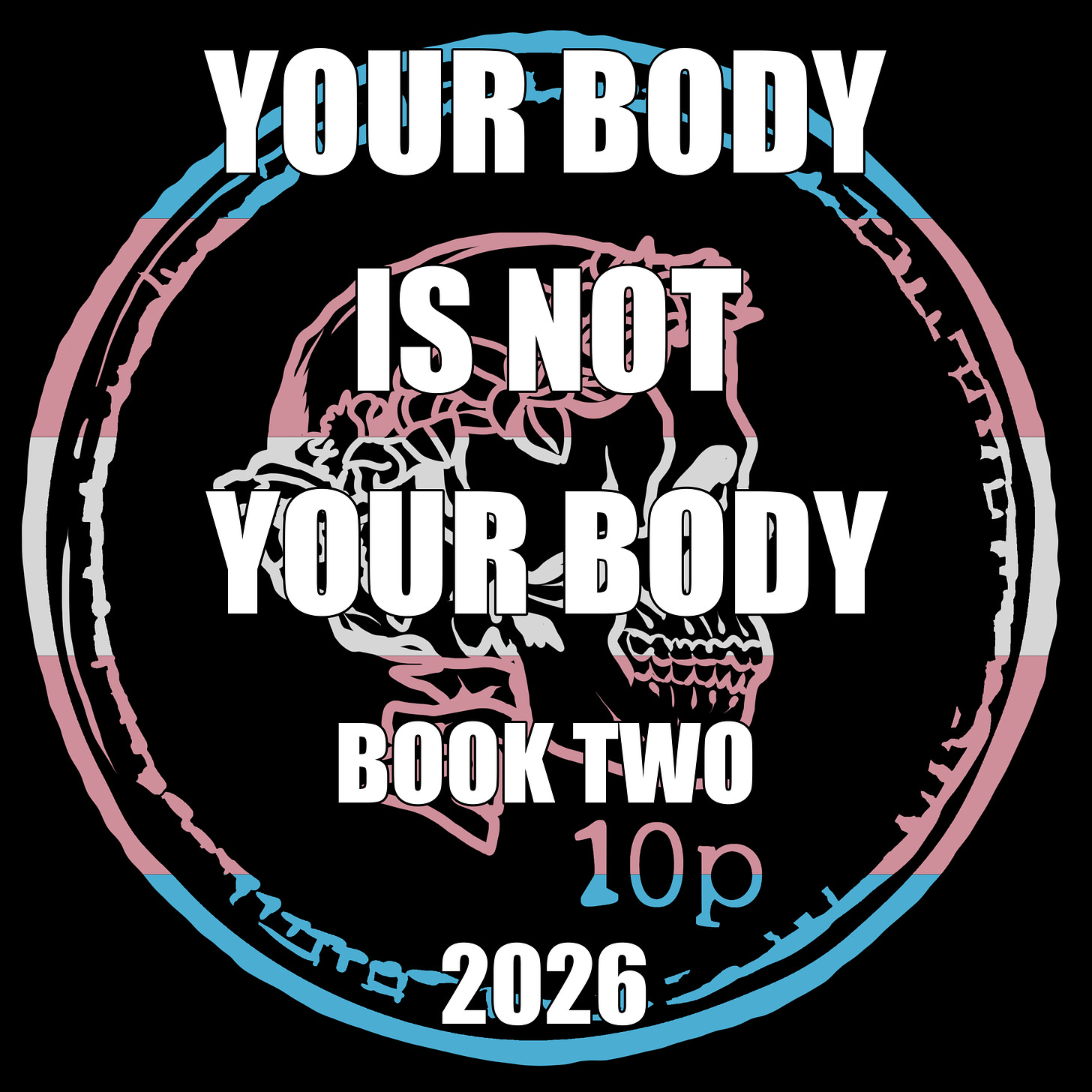Why so uptight? Keep it CASUAL. OUT NOW
“Up there with Atwood, Bradbury, Dick, and Gibson. Dae’s novel seems both inevitable and horrifying. A must-read for the moment.”
Hails, Tenebrous Cult!
A revolution is here. The future is now. Koji A. Dae’s CASUAL is out now. Get it direct from us, or from your local bookstore, or from your library if your library’s cool like that (libraries by default are cool, but you never know).
Look, we’ve been talking about CASUAL in this newsletter for a while now. You’re probably sick of hearing what I have to say about it.
But you know who you haven’t heard from here? Koji herself.
Take it away, Koji
Want a real horror story? Go on the pregnancy forums and read about women experiencing pregnancy for the first time. You'll find hints of Government regulation, bureaucracy, and skyrocketing medical costs (ex. a large portion of the epidural debate is not whether women want it, not whether it is healthy, but whether insurance will cover it). On top of all that, you'll find a thread of "no one told me" that encompasses a wide range of pregnancy and postpartum symptoms that are rarely shared publicly and never mitigated.
My "no one told me" moment was rage.
I had a high level of anxiety throughout my whole pregnancy. I couldn't go to the movie theater because the loud sound systems made me cry uncontrollably. I could barely ride in a car. But I was a new mother for about nine months when I experienced an actual burning-in-my-veins, mind-blacks-out, I-need-to-leave-the-room sort of rage. It made me realize that I had never experienced physical anger before. Mental annoyance? Sure. Logical anger? Yep. Physical, chemical, hormonal driven anger? Nope. I had lived 31 years with no idea what people were actually talking about when they said they got mad or angry. This, mixed with my long history of anxiety that was exacerbated by pregnancy, gave me the drive to start writing CASUAL. I started with two goals:
Explore mental health issues during pregnancy in a non-exploitative way.
Write a story that utilized my non-linear experience of the world.
I think I achieved both of those. But the thing about books is that while being written, they seem to develop minds of their own. Which is how CASUAL became a book that (I hope) critiques the way companies exploit the most vulnerable populations to test medical advancements whose actual purpose is to make them a crap ton of money when they go commercial, while examining the ways we deal with the increasing separation between the haves and have-nots.
Once a book is written, the writer doesn't really get to have goals for it anymore—it becomes the world's to read and do with as it pleases. If the book can be a lens that highlights aspects of our current times—good. If it can give someone hope that there's a path to resistance even when we're being controlled from every angle—even better. And if it remains just a very personal horror story of one woman's pregnancy, that's okay too.
About CASUAL:
Valya’s neural implant is amazing.
Its game-like app, CASUAL, has managed her depression and anxiety, stabilized her mood, and helped the infertile Valya get pregnant. But new laws forbid her from using the device when she's sole caregiver for her infant. Her gaslighting ex won't help her, and she can't afford a nanny, so her obstetrician insists that Valya wean off CASUAL before giving birth.
Despite a will to quit and a supportive new love interest in her birthing class, disabling CASUAL turns Valya's anxiety into full-blown panic attacks. Her psychiatrist offers to enroll her in a controversial clinical trial that would place a tandem implant in the baby and allow Valya to keep hers active. Valya must decide whether she should attempt parenting without CASUAL or install a minimally tested device in her vulnerable child.
Casual is a stark and cutting glance at a near future that looks uncannily like our present, exploring themes of bodily autonomy and the struggle for mental health in a world increasingly divided.
Cover art by Cristina Bencina.
Interior illustrations by Helen Whistberry.
“Eerily believable, incredibly relatable and heartbreaking.”
Booklist
"A stunningly written story about class, mental health, women’s autonomy and all the ways a society can seek to control these, in a future so real I could almost touch it.”
Ed Crocker, FanFiAddict
“Compelling and incredibly imagined. Akin to classic dystopian literature like 1984 and Brave New World. It left me reeling."
Ivy Grimes, author of Glass Stories
“A complex and compassionate exploration of mental health and motherhood. Unlike anything I have ever read before.”
Emily Ruth Verona, author of Midnight on Beacon Street
“Thoughtful and character-focused. Kept me thinking long after I had finished the book. Highly recommended."
Christi Nogle, author of Stoker Award® winner Beulah
That’s it, that’s all. We’re not gonna let anything else get in the way of CASUAL’s moment in the sun!
…well okay, yeah, we did stealth this one out last week:
…but we don’t have anything more to tell you about it just yet.
We promise: when we know more, you will know more.
(And no, all you beautiful Weirdos: submissions are not open yet.)
Hail the Tenebrous Cult.
Hail Indie Publishing.
Hail CASUAL.
Matt + Alex + Koji







